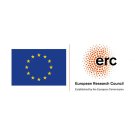WTW "Social Insurance and Welfare-To-Work Programs: Optimal Design and Structural Evaluation"

P.I. prof. Nicola Pavoni
This project has three main goals. First, to improve the theoretical understanding of the design of optimal social insurance and Welfare-to-Work (WTW) programs.
Second, to provide a new structural framework for the evaluation of existing policies. The framework is integrated and theory-based, but rich enough to allow a meaningful empirical analysis. It specifies in detail the economic environment (e.g., the available technologies and the informational asymmetries). The accurate specification of the economic environment will jointly endogenize the market imperfections the worker faces, and determine the set of available policies. This and the integrated nature of the approach will play an important role in the policy evaluations stage since they allow a proper determination of the costs and returns of a given policy, by including for example a coherent estimation of the opportunity costs and the recognition of possible complementarities between policies within the WTW program.
Third, to apply the methodology to specific situations.
The project is divided into 6 sub-projects with a similar structure. Each sub-project uses a similar methodology and builds a theoretical model appropriate to the specific set of issues. The first block of the project is a theory section, where I address a new theoretical issue qualitatively. The analysis is complemented by a quantitative section where the model is calibrated or estimated and then used to evaluate an existing WTW and/or Social Insurance program.
The 6 sub-projects are: 1. Efficient Training Programs for Workers on Welfare 2. Optimal Unemployment Insurance, Layoff Risk, and Hidden Wealth: A Case for an Unemployment Accounts System 3. Evaluation of Welfare-to-Work Programs: The case of the UK New Deal 4. On-the-job Search, Wage Subsidies, and Optimal ‘Work-First’ Programs 5.Optimal Welfare Programs for Households 6. Identity, Temptation and Student Discipline: A Multilevel Approach to Optimal Education Policy.

This project has received funding from the European Research Council (ERC) under the European Union’s Horizon 2020 research and innovation programme.